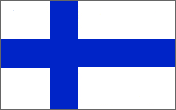Any time I use the wrong definite article my German wife will loudly bark “NEIN!” It’s hot but educational.
memes
Community rules
1. Be civil
No trolling, bigotry or other insulting / annoying behaviour
2. No politics
This is non-politics community. For political memes please go to !politicalmemes@lemmy.world
3. No recent reposts
Check for reposts when posting a meme, you can only repost after 1 month
4. No bots
No bots without the express approval of the mods or the admins
5. No Spam/Ads
No advertisements or spam. This is an instance rule and the only way to live.
A collection of some classic Lemmy memes for your enjoyment
Sister communities
- !tenforward@lemmy.world : Star Trek memes, chat and shitposts
- !lemmyshitpost@lemmy.world : Lemmy Shitposts, anything and everything goes.
- !linuxmemes@lemmy.world : Linux themed memes
- !comicstrips@lemmy.world : for those who love comic stories.
Hey, is your wife free later? I could really use some German lessons. I mean German less- I mean German- I mean Ger- I-I-I mean light domming.
I'm not sure any of those french phrases ever translate to "the"
You're right, they don't.
The ones beginning with "d" generally translate as "of the," while the "à" ones generally translate as "to the" or "at the."
French has three words that mean "the": "le" (masculine), "la" (feminine), and "les" (plural).
Right yeah I know. I was just allowing for some potential context I wasn't aware of
Russian:
Der, die, das 👏👏...
Wer, wie, was👏👏
Wieso, weshalb, warum? 👏👏
Wer nicht fragt, bleibt dumm!
1000 tolle Sachen
Die gibt es überall zu sehen
Manchmal muss man fragen
Um sie zu verstehen
In Norwegian (or rest of scandinavistan, as far as I know) we don't even use "the". Suffixes are used instead.
Fish = Fisk
The fish (single) = Fisken
The fish (plural) = Fiskene
So, is there no differentiation between "a fish" and "the fish"?
A fish - en fisk
The fish - fisken
English would be a lot more fun if they did the same as us.
A fish
Fisha
A man
Mana
A book
Booka.
Proud lad from Jutland here: in our dialect we do use "the" in "æ".
The fish = æ fisk
I'm trilingual and two of the languages don't even have this bs lol (Mandarin, Japanese, English).
Recently I went on Wikictionary by curiosity to see how a Japanese world was constructed and Japanese looked extremely powerful but insanely complex.
You can properly express so much in this language
I'm learning japanese right now, it has a very Lego-like structure for creating words and sentences that allows you to be very specific about things which is pretty cool.
Homophones are waaaaay more common in Japanese than in English though.


Edit: Shit, I mistook the original meme as about grammatical cases instead of articles. I think Finnish has 15 cases. 🤔🫣
| French | English | |
|
| | du | of the | | de l' | of the | | de la | of the | | des | of the | | au | to the / at the | | à l' | to the / at the | | à la | to the / at the | | aux | to the / at the |
French has multiple options because it has 2 genders for nouns "the chair" = "la chaise" (female), "the bench" = "le banc" (male), and it changes the article when you're talking about multiple things vs. single things "the benches" = "les bancs".
So, French really has 3 versions of "the": "le" (male, singular), "la" (female, singular), "les" (female or male, singular).
But German... ugh. There's a 4x4 matrix of German words for "the". German had the wisdom to come up with a neuter gender, but the insanity to not apply it to most common objects. Somehow a knife is sexless, a spoon is male and a fork is female. Making it worse, the version of "the" you use for an object depends on whether the object is the subject of a sentence, the object of a sentence, the indirect object of a sentence or possessive. I don't know if it's better or worse (but I'm leaning towards worse) that they re-use a lot of these articles at other spots in the matrix, so "der" is used for male objects in the nominative case, female in the dative case, and plural objects in the genitive case.
| Case | Masculine | Feminine | Neuter | Plural | |
|
|
|
|
| | nominative | der | die | das | die | | accusative | den | die | das | die | | dative | dem | der | dem | den | | genitive | des | der | des | der |
Take "Stein" which is stone, not beer glass. If you're an English speaker and are used to adding an "s" to make something plural, and you see "Der Stein" and "Des Steines", you might think that the version with the "es" is the plural, right? Nope, the plural of "Der Stein" is "Die Steine". "Des Steins" is for the possessive case. You'd use "Der Stein" for "The stone is heavy", but if you want to say "The weight of the stone is high" you have to switch to "Des Steins" -- and to add another twist, sometimes it's "Steines" because of reasons.
él la los las
Ellos ellas
Eso esa
Esos Esas.
English is schizo, but “the” is actually a very nice simplification, and It hardly impacts the communication.
… ~~it~~ he hardly impacts …
The Inquisitor!

Yorkshire:
T' (Glottal stop sound)
I'm not sure it's kosher to count à la and de la as separate definite articles.
I don't speak French but from my understanding, they fulfill the function, cases in German do. But than again you could add "to the" and "of the" in English
Strangely, le itself is missing from this list, probably the most obvious definite article
I don't even know a correct way to translate 'the' to my language, it doesn't really exist
Me speaking a language which uses quotes instead of the

That kid is about to ruin someone's microwave lunch.
You guys have articles?
Die Nichteinhaltung der Fallzahlen von eins bis vier vom Mittelpunkt ausgehend stört mich massiv.
Der, des, dem, den
Die, der, der, die
Das, des, dem, das
Die, der, den, die
Norwegian: -en, -a, -et (suffixes)
But also -o, -i and probably other variations depending on location.
Polish: (null)
🫲👁️🧠👁️🫱
Correct, Polish doesn't exist. It never has, and it never will.
Too many instances of den, not enough of das.
I can see now why English is seen as more universal, even if in an alternate timeline where the Anglophones never became dominant.
In hungarian the articles are only "a"(which actually works like the english "the" but with a form that is "az" which is like "a" turning into "an" in english) and then "egy" which means "a" in english but also means the number one. Most times from what i notice it works pretty closely to what german or english does. Where my whole "it works pretty intuitively" argument falls apart is that you conjugate your freaking verbs and they work in sometimes completely mysterious ways.
"Eszek egy almát" and "Eszem az almát" -- these are just "I eat an apple" and "I eat the apple"
But "Almát eszek" also works it just sounds more like you are specifically pointing out that its an apple that you are eating(and not an orange for example) and even tho its in the indefinite form it can sound pretty definite depending on context.
But then "Almát eszem" sounds like you are eating a person named Alma because for some reason not having the article makes it sound more personal.
"Eszek" is just eating
And at last "Eszem" sounds like you are pointing out that "I am eating that" or "I am eating that". Also if its in a more rural dialect it could be just the base form.
So yeah its an absolute brainfuck in hungarian.
the
